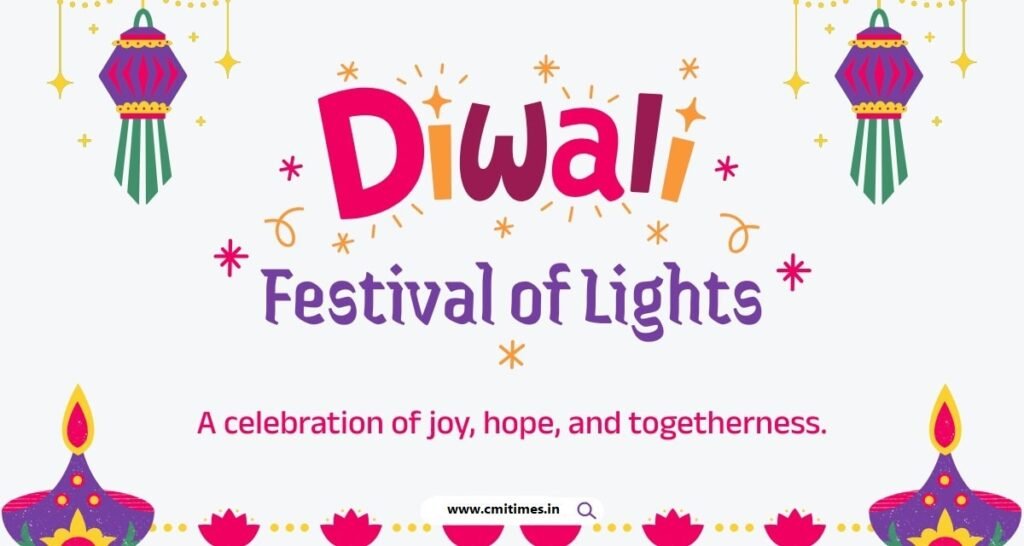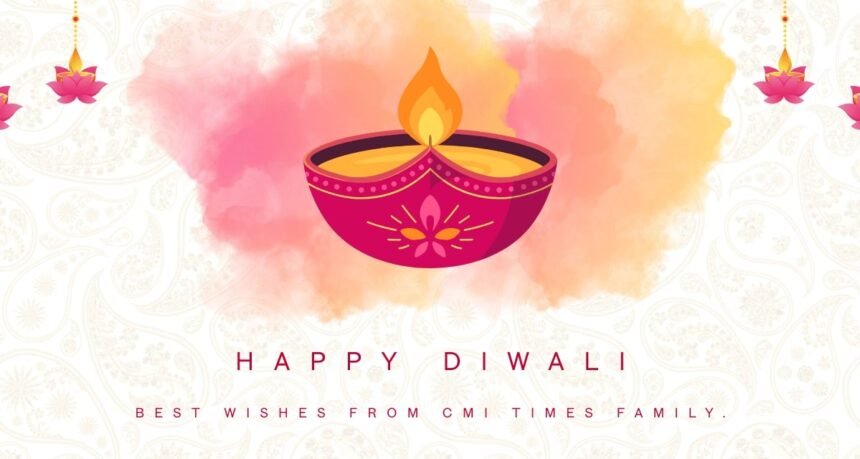Diwali: Every year, as the coolness of autumn sets in, homes across India and the world are illuminated with the glow of flickering lamps, the aroma of sweets, and the sweet sounds of laughter. Diwali, the festival of lights, is not just a celebration; it’s a feeling. It commemorates hope, unity, and the triumph of light over darkness.
Diwali: The Story Behind the Lights
Diwali is deeply rooted in India’s diverse cultures and faiths. Although its meanings vary across regions, the core message remains the same: the triumph of good over evil.
In North India, Diwali marks the return of Lord Rama to Ayodhya after 14 years of exile and his victory over the demon king Ravana. People welcomed him with rows of lit earthen lamps, illuminating the city with joy and reverence.
In Gujarat, the festival celebrates Goddess Lakshmi, the goddess of wealth and prosperity, where devotees open their doors and hearts for her blessings. In West Bengal, it coincides with Kali Puja, which honours the fierce goddess who destroys ignorance and darkness. In the South, it marks Lord Krishna’s victory over Narakasura, symbolising liberation from evil. Each version of the story reinforces the same truth: that even in the darkest times, light always finds its way.
Tradition in Every Sparkle
Preparing for Diwali is a special experience in itself. Weeks before the festival, homes are cleaned, decorated with rangoli (lively artwork on the floor), and decorated with vibrant lights. Cleaning isn’t just about cleanliness; it’s symbolic, purifying the mind and soul, creating space for positivity.
On Diwali night, homes are illuminated with diyas placed in windows, balconies, and courtyards. Families perform Lakshmi Puja, praying for peace and prosperity. The air is filled with the crackle of fireworks, the buzz of conversation, and the enchanting aroma of festive delicacies like laddus, kaju katli, and gujiyas.

Solidarity Beyond Borders
More than anything else, Diwali symbolizes togetherness. It’s a time of year when families come home, friends reunite, and neighbors share sweets and smiles. The barriers of everyday life melt away in the warmth of shared celebration.
In cities saturated with modern life, Diwali rekindles a sense of belonging. It connects generations—grandparents share stories of old festivals, children light their first sparklers, parents pass on rituals that keep traditions alive. Even those far from home find their own ways to celebrate—lighting a lamp on the balcony, attending a community event, or calling loved ones across continents.
An Evolving Festival
As times change, so too does the way we celebrate. In recent years, there has been a growing awareness about celebrating Diwali responsibly, reducing noise pollution, minimizing the use of firecrackers, and adopting eco-friendly decorations. Many families now prefer to light earthen lamps instead of plastic ones, support local artisans by purchasing handmade decorations, and donate to those in need.
Its essence remains unchanged; it’s not extravagance, but emotion. Gratitude for what we have and compassion for those who have less.
The Light Within
Diwali isn’t just an external spectacle; it’s an internal reflection. The true light of Diwali isn’t in candles or fireworks; it’s in our kindness, the relationships we nurture, and the happiness we spread. It’s an invitation to let go of bitterness, let go of old grudges, and make a new beginning.
Ultimately, Diwali reminds us that the brightest lights are those we kindle in our hearts.
Also Read: Two Young Founders Behind Zepto, One Big Goal: the Story of the 23-Year-old Pioneers





